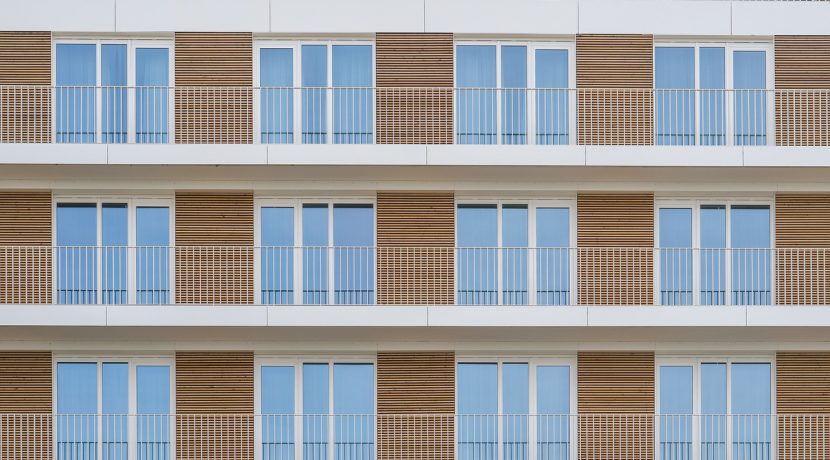Leasing a holiday home in Dubai
How you can let out your house without breaching the law
With the take-off of organisations such as AirBnB, letting residential property has become more popular than ever in Dubai. In 2013, Dubai enacted two decrees relevant to the licensing and regulation of holiday homes. They are Decree No. 17 of 2013: licensing and classification of hotel establishments, and Decree No. 41 of 2013: regulating the activity of leasing out holidays homes.
What is the difference between the two decrees?
Decree No. 17 of 2013 is a licensing decree that relates to the licensing and classification of hotel establishments and Decree No. 41 of 2013 is a regulation decree that relates specifically to leasing a holiday home. This article will focus on the regulation decree.
Decree No. 17 of 2013 relates to hotel establishments
Decree No. 41 of 2013 relates to leasing a holiday home
Dubai has been steadily working towards its goal of achieving more than 20 million visitors per year by 2020, which is double the number of visitors that were welcomed in 2012. The drive to achieve this goal has been led by His Highness Shaikh Mohammad Bin Rashid Al Maktoum, Vice-President and Prime Minister of the UAE and Ruler of Dubai, and leading authorities, including the Dubai Department of Tourism and Commerce Marketing (DTCM).
Among other things, Dubai has moved to improve connectivity with the rest of the world and create tourist attractions and a hospitality industry that is reliable, safe and provides excellent standards. The number of hotel rooms and hotel apartments is forever increasing, and Dubai recognises that there is fresh value to be gained from the proper regulation and offering of holiday homes, especially for larger groups of travellers such as families, which is a key target market.
The regulation decree
The regulation decree applies to holiday homes, i.e. furnished real property units that are designated to be let regularly and in an ongoing basis. The holiday homes are to be leased or rented out on a subletting basis. The property can only be used for overnight accommodation, while letting to companies is forbidden. A company can, however, obtain a licence to sublet a holiday home.
Occupiers should first consider whether they can lawfully sublet a holiday home if they are tenants of the property. In such cases, consider the terms of the tenancy agreement and obtain the landlord’s prior written consent if necessary. If lenders are involved, it may be a term of the mortgage agreement that a lender’s prior written consent is obtained prior to subletting.
Any person intending to let out a holiday home must be licensed to do so by the DTCM. Each holiday home will be classified as either deluxe or standard. The regulation decree sets out, among other things, the DTCM’s duties and powers, the terms of the licence, obligations of the licensee, fees and penalties.
VAT
DTCM requires licensees to collect taxes and fees for each confirmed booking. We have sought clarification from the DTCM and Federal Tax Authority to ascertain whether or not VAT is payable on any sums due and we have been advised that it is.
Among its duties and powers, the DTCM can:
set the technical conditions, requirements and criteria to be met by licensees, and determine the procedures to grant a licence; determine applications for new, renewed or varied licences and maintain a database of licensees and holiday homes in Dubai;
determine the licensees’ tasks, duties and obligations;
supervise and monitor licensees and their holiday homes to ensure compliance;
receive, investigate and take action on complaints and impose penalties.
The term of each licence will be for one year and renewable each year. Should an licensee apply for extension of the term, the DTCM may approve a licence for a term of up to four years.
Among other things, a licensee is obliged to:
notify the DTCM of any variation of details of the licensee;
lease out each holiday home as a whole, rather than in part as separate rooms or bed spaces, on a daily, weekly, monthly or annual basis;
keep hard and soft copy records of all information relating to the holiday home, accessible by the DTCM;
insure the holiday home for the extent of the licence such that guests are indemnified for any damage that they might sustain;
subscribe to the e-Programme for Hotel and Tourism Establishments;
provide guests with information on the holiday homes, including their classification categories;
provide maintenance services;
provide electricity and water services for no extra cost to the guests; and
not act as a broker between guests and any non-licensed entity.
The penalties for breaching the regulation decree, notwithstanding any rights that arise from other legislation, are a minimum penalty of Dh200 and a maximum of Dh20,000. If the same violation is repeated within one year from the date of the initial breach, the penalty shall be doubled. Any repeated violation within the same period will continue to double the penalty imposed, up to a maximum fine of Dh100,000. In addition to a monetary fine, the DTCM also has the power to warn, suspend, and/or cancel the licence.
All rights reserved to the initial publisher for Gulf News
Collected and published by Arms &McGregor International Realty® editorial team. Get in touch with us at [email protected]

